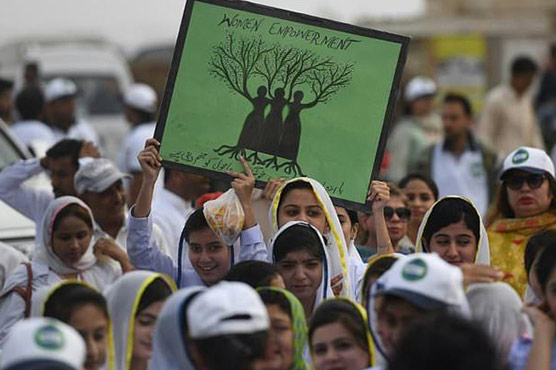Contraception use and fast-growing Pakistan

Population experts have said the census is expected to show that growth remains high
ISLAMABAD (AFP) - Pakistan will raise the rate of contraception use to at least 50 percent within the next three years, the health minister has said, in a bid to help control its fast-growing population.
Observers have warned that Pakistan s population boom is negating any economic progress, using up valuable resources in a young country where jobs are scarce and nearly 60 million people live below the poverty line.
The current contraceptive prevalence rate, or percentage of women who are currently using or whose sexual partners are currently using contraception, stands at around 35 percent, health minister Saira Afzal Tarar told participants at an event to mark World Population Day on Tuesday.
Raising it to 50 percent would put it just below neighbouring India, whose rate is 53.5 percent, according to World Bank figures.
"Our government fully recognizes that issues of sustainability, climate change, women s empowerment are all embedded in these population trends and deserve our focus," she said, according to a ministry statement.
Pakistanis would be offered "greater contraceptive choice through an improved method mix, better counselling, and expanding the use of long acting reversible methods," she said.
Sex education is lacking in deeply conservative Pakistan, and experts have long called for greater awareness, access to contraceptive methods, and the empowerment of women to make their own reproductive choices.
The country has the highest birth rate in South Asia at around three children per woman, according to the World Bank and government figures.
It is currently awaiting the results of its first census in nearly two decades, but the minister said its population had grown from some 110 million in 1989 to more than 190 million by 2017.
Population experts have said the census is expected to show that growth remains high.


